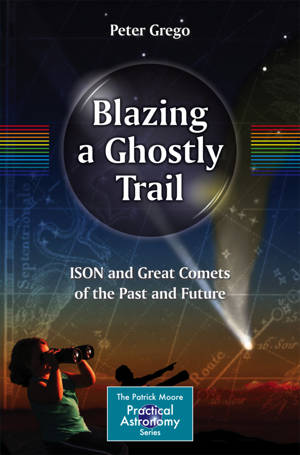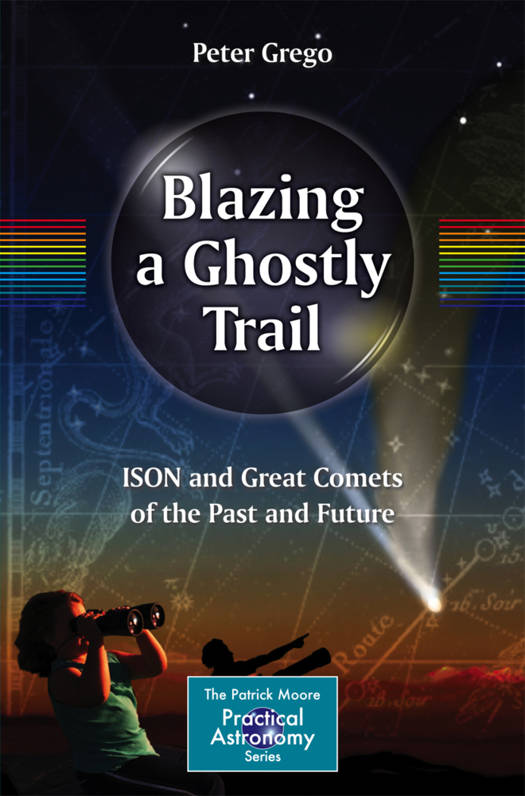
- Retrait gratuit dans votre magasin Club
- 7.000.000 titres dans notre catalogue
- Payer en toute sécurité
- Toujours un magasin près de chez vous
- Retrait gratuit dans votre magasin Club
- 7.000.0000 titres dans notre catalogue
- Payer en toute sécurité
- Toujours un magasin près de chez vous
Description
Ice and Fire: Great Comets to Come was written because a special celestial event climaxes towards the end of 2013 - the arrival, fresh from the Oort Cloud, of Comet C/2012 S1 (ISON). By all predictions - even the most pessimistic ones - this comet is set to be one of, perhaps the most, dazzling comet seen in modern history and has the astronomical world buzzing with anticipation.
Skywatchers have already been primed for C/2012 (ISON) earlier in 2013 with the apparition of another naked-eye comet, C/2011 L4 (PanSTARRS), and following C/2012 S1 (ISON) there is the prospect of 2012 K1 (PanSTARRS) reaching naked eye visibility in August 2014. Future bright cometary prospects are also discussed, taking into account the latest predictions.
Examining the origin and nature of comets using examples of great comets from the past, this book sets the scene for the arrival of Comet C/2012 S1 and those following it over the next few years in the inner Solar System. Skywatchers and amateur astronomers can learn how to follow, observe and record comets. There is also a guide on how to keep abreast of the latest cometary discoveries and how to use a variety of reputable sources, including publications, websites, programs and apps to visualize and plan observations. The role of the amateur in cometary discovery also is featured, as well as details on how professional astronomers plan to get the most 'science' out of cometary apparitions, how and why professionals go about discovering comets, and upcoming plans to visit comets with space probes (and later, perhaps, human visits). Illustrations provide historic images of comets, images from space probes and images of the latest bright comets. Orbital plots and easy-to-follow sky charts are also included.
This book is a unique guide that sets the scene by giving a comprehensive history of comets and examples of great comets throughout history and informs the reader about the nature and originsof this spectacular occurence. Expectations are fully covered by explaining not only what the regular person can expect to see, but how amateur astronomers can plan observations and what steps the professionals are taking to 'get the most science' from this exciting event.
Spécifications
Parties prenantes
- Auteur(s) :
- Editeur:
Contenu
- Nombre de pages :
- 294
- Langue:
- Anglais
- Collection :
Caractéristiques
- EAN:
- 9783319017747
- Date de parution :
- 30-10-13
- Format:
- Livre broché
- Format numérique:
- Trade paperback (VS)
- Dimensions :
- 152 mm x 229 mm
- Poids :
- 453 g

Les avis
Nous publions uniquement les avis qui respectent les conditions requises. Consultez nos conditions pour les avis.






